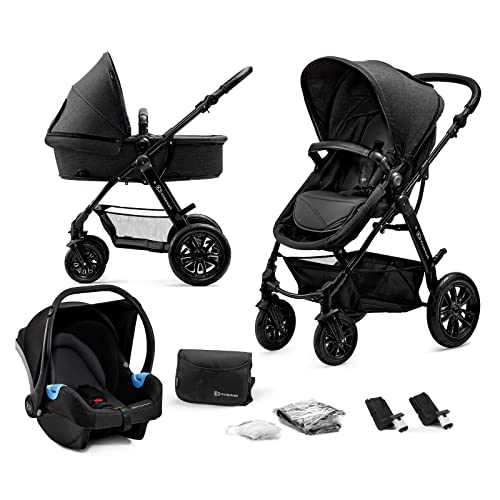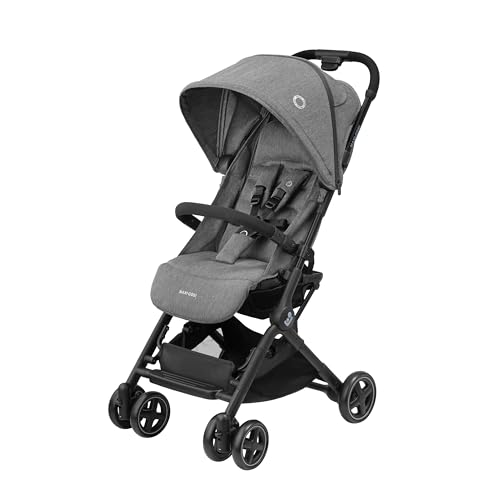Nine Things That Your Parent Taught You About Running Pram
페이지 정보

본문
 What to Look For in a Running Pram
What to Look For in a Running Pram A running pram is a type of stroller designed to operate at higher speeds and can offer suspension on the wheels to provide a more comfortable ride for babies. They come with a front wheel that can be locked into place to ensure safety, as well as a hand brake for better control.
A running pram is a type of stroller designed to operate at higher speeds and can offer suspension on the wheels to provide a more comfortable ride for babies. They come with a front wheel that can be locked into place to ensure safety, as well as a hand brake for better control.Most pelvic floor physical therapists advise that babies age nine months old prior to starting buggy running. Every child is unique.
Safety first
Including your baby to your workout routine can be an enjoyable experience, but it's essential that safety comes first. Ensure that you choose quiet, safe pathways or wide-paved paths and stick to the times of day when your little one is at their most content. Babies can also be fussy with a full tummy so it's important to plan your jog around feed times for smooth, easy experience. A 5-point harness can keep your child safe while you jog, and a handbrake can assist you in keeping control. This is crucial when you're moving fast and you need to brake quickly.
Parents who enjoy their cardio workout that makes them feel good, running prams are a great option. Double the exercise that burns calories outdoors and bonding time and you'll be inspired to keep going even as your child grows. It's tempting to compare your solo running speed to your jogging speed, but remember that the demands on your legs are greater when you're pushing a baby and their gear. If you're planning to push yourself further think about purchasing a specialized pram for jogging that has air-filled tyres that offer shock absorption and smooth the bumps.
Stability
Stability is crucial when you run with your baby in the pram. It's for your enjoyment as well as your child's safety. Pick a stroller that is stable and responsive, with large wheels that are capable of rolling over any surface and taking care of bumps. It must also have a locking wheel on the front to increase maneuverability at higher speeds. Choose a model that has air-filled tyres to keep pressure up and decrease the risk of punctures.
The ideal pram will allow you to maintain your natural running posture without stooping over or leaning too far back, which can cause discomfort and pain. You should also find the right balance between pushing harder and easing off so that you don't overstrain your knees, hips, or back.
You can also enhance your stability and comfort by selecting a model with adjustable handlebars that adjust to your height. This will reduce the need to bend over while running and make sure your wrists aren't over stressed, particularly if you're doing a lot of sprint training!
It's impossible to predict the moment when your baby is ready to "graduate" from the pram. However, engaging your child in physical activity at an early age will give them a sense of independence and help them establish the foundations for an active and healthy life. It's also a great way to spend quality time with them and help them become comfortable with the outdoors.
Speed up
The best running prams provide a smooth and stable ride at a steady pace. The front wheel will usually pivotable, which permits ease of movement around town or when the pram is used every day. It can also be locked in a fixed position to ensure safety when travelling at speed. The back wheels usually have suspension and are big enough to lessen the impact and smooth out bumps. They should also be made from a strong, puncture-resistant material.
It can be a wonderful feeling to watch your child be active and running pushchair can help them maintain an ideal life for the rest of their lives. It's important to keep in mind that running with a stroller is different than running by yourself. While you may be able to complete long runs more quickly, your endurance may be affected and your child could become overstimulated.
We suggest that you limit your jogs until your baby is comfortable in the jogging stroller travel. You might find that your child can run longer distances prior to this point but you must consult your family doctor or paediatrician to make sure your child is able to handle the strenuous task. If you're planning to push your baby uphill then it's best to graduate to this after you've had an adequate amount of experience running on flat surfaces at a fast speed. You might also consider an all-terrain stroller with large, 3 in 1 pram (this guy) high-traction tyres. This will let you deal with roots, gravel and other natural obstacles.
Comfort
In addition to safety, you'll require a pram that makes it as comfortable as is possible for your child. This could include a system that absorbs the impact and reduces bumpiness, or air-filled rubber tires that have the similar feel of bike tyres, but with no possibility of punctures.
It is also important to choose the best time to run, since babies are typically satisfied after a nap or a feeding. It is crucial to consider the type of surface that you'll be running on. Damaged footpaths are a nightmare for pram runners who are just starting out and smooth surfaces allow them to move at a faster speed.
Running prams are a great option for you to get fit and bring your child along on your most memorable adventures. Many feature adaptable designs that convert between a running pram, a regular pram, and bike trailer, which means you can continue to take your child on family trips as they grow. But remember that incorporating your child in exercise isn't just about increasing their health and wellbeing, it's also about building their independence and empowering them to explore the outdoors on their own.
- 이전글What Is Chest Freezers Uk And How To Use It? 24.09.03
- 다음글Nine Things That Your Parent Teach You About Programmed Car Keys 24.09.03
댓글목록
등록된 댓글이 없습니다.